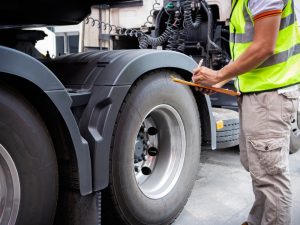Obtaining a Heavy Combination (HC) truck licence is a significant achievement for those passionate about driving large vehicles and wanting to pursue a career in the transport industry. Not only does it open up a range of opportunities, but it also enhances your skills and earning potential. This article will explore the numerous benefits of holding an HC truck licence, the qualifications required, and how it can impact your career.
Why should you consider an HC truck licence?
An HC truck licence offers numerous advantages for anyone interested in advancing their career in the trucking industry. An HC truck licence offers job flexibility, diverse opportunities, and the ability to operate larger, complex vehicles. If you’re serious about becoming a professional driver, here’s why obtaining an HC truck licence is worth your time:
- Wider job opportunities: Many transport companies require drivers with HC licences to operate their fleet of trucks, including prime movers and articulated vehicles.
- Higher earning potential: An HC truck licence qualifies you for higher-paying roles, particularly those involving long-haul or interstate driving.
- Job security: The demand for HC truck drivers continues to grow, offering stability and security in the transport industry.
- Increased versatility: You’ll be trained to drive a range of heavy combination trucks, allowing you to work in different sectors within the transport industry.
- Career advancement: Holding an HC licence is often a stepping stone to further qualifications, such as the Multi Combination (MC) licence.
An HC truck licence sets you apart, making you a valuable asset to employers seeking reliable, skilled, and qualified professional drivers.
Who can apply for an HC truck licence?
The requirements for obtaining an HC truck licence vary depending on the state and your experience level. However, there are some general prerequisites that applicants must meet. Here’s a quick breakdown:
- Age requirement: Applicants must be at least 21 years of age.
- Previous licence: You must hold a Heavy Rigid (HR) truck licence for at least 12 months before applying for an HC licence.
- Medical fitness: A medical examination is required to ensure you can drive heavy vehicles.
- Driving history: A clean driving record is crucial for Sydney truckers, with no major traffic violations or disqualifications in recent years. Employers often prefer truckers with a spotless record. They are more likely to secure long-term contracts and higher-paying opportunities.

- Training completion: You must complete HC truck driving training at an accredited driving school.
These requirements ensure that only qualified, experienced individuals can operate heavy combination vehicles, maintaining safety standards within the industry.
What types of trucks can you drive with an HC licence?
Holding an HC truck licence allows you to drive various heavy combination vehicles. Here’s what you can expect:
Truck Type | Key Feature | Common Use |
Prime mover | Tows trailer | Long-haul freight |
B-double | Two trailers | Bulk freight transport |
Road train | Multiple trailers | Remote area transport |
Tanker truck | Carries liquids | Fuel/Chemical delivery |
Equipment hauler | Heavy machinery | Construction logistics |
This variety gives you flexibility in choosing your career path, as you can work across several industries, from logistics to construction and mining.
How to obtain an HC truck licence?
Obtaining an HC truck licence involves several key steps, including completing formal training and a practical driving test. Here’s an overview of the process:
- Step 1: Ensure eligibility: You meet the requirements, such as holding a Heavy Rigid (HR) licence for at least 12 months.
- Step 2: Enrol in an accredited training course: Choose a reputable driving school that offers comprehensive HC truck licence training. The training will cover theoretical and practical aspects of driving heavy combination vehicles.
- Step 3: Complete your training: Your training will include classroom lessons on road safety, vehicle maintenance, and load management, as well as hands-on driving experience.
- Step 4: Pass the practical driving test: After completing your training, you’ll need to pass a practical driving test that evaluates your ability to operate a heavy combination truck safely.
- Step 5: Obtain your licence: Once you’ve passed your test, you’ll be issued an HC truck licence.
The process may seem lengthy, but the end result is worth it, as it opens the door to exciting career opportunities.
What skills will you gain during HC truck licence training?
Training for your HC truck licence equips you with essential skills to operate heavy combination vehicles safely and efficiently, highlighting the importance of safety in truck driving. Here’s a look at the skills you’ll develop during your training:
- Safe driving practices: Learn the essential techniques for driving large vehicles, including handling different road conditions and challenging weather conditions.
- Vehicle control: Master the art of controlling a heavy combination truck to ensure smooth driving, braking, and turning.
- Pre-trip inspections: Learn how to conduct thorough checks of your vehicle before hitting the road to ensure it’s in good working condition

- Load management: Gain knowledge in proper load distribution, securing loads, and ensuring that your truck is roadworthy.
- Road safety awareness: Understand the rules and regulations surrounding the operation of heavy vehicles, including speed limits, road signage, and legal requirements.
These skills help you pass your driving test and safely operate heavy combination vehicles in diverse and challenging work conditions.
Why is safety crucial when driving a heavy combination truck?
Driving a heavy combination truck comes with significant responsibilities. Safety is paramount, both for the driver and other road users. Here’s why safety is critical:
- Increased vehicle size: Larger vehicles are more challenging to manoeuvre and require more space to stop, making careful driving essential.
- Increased risk of exhaustion: Driving long hours with heavy vehicles can lead to fatigue, impairing your ability to react quickly and make sound decisions.
- Road hazards: Drivers must be vigilant and prepared to handle potential road hazards, such as slippery roads, construction zones, or sudden stops.
- Load management: Unsecured or unevenly distributed loads can make trucks unstable and challenging to control.
- Compliance with regulations: Adhering to safety regulations, such as speed limits and mandatory rest breaks, helps maintain industry safety standards.
Safety means more than rules—it’s building habits and skills to protect yourself, passengers, and everyone else on the road.
Conclusion
Getting an HC truck licence provides more job opportunities, better pay, and skills to safely operate large and heavy vehicles. It’s a great step for anyone looking to advance their driving career or gain valuable experience.
Looking to take the next step in your truck driving career? Core Truck Driving School could be the right place to start.


